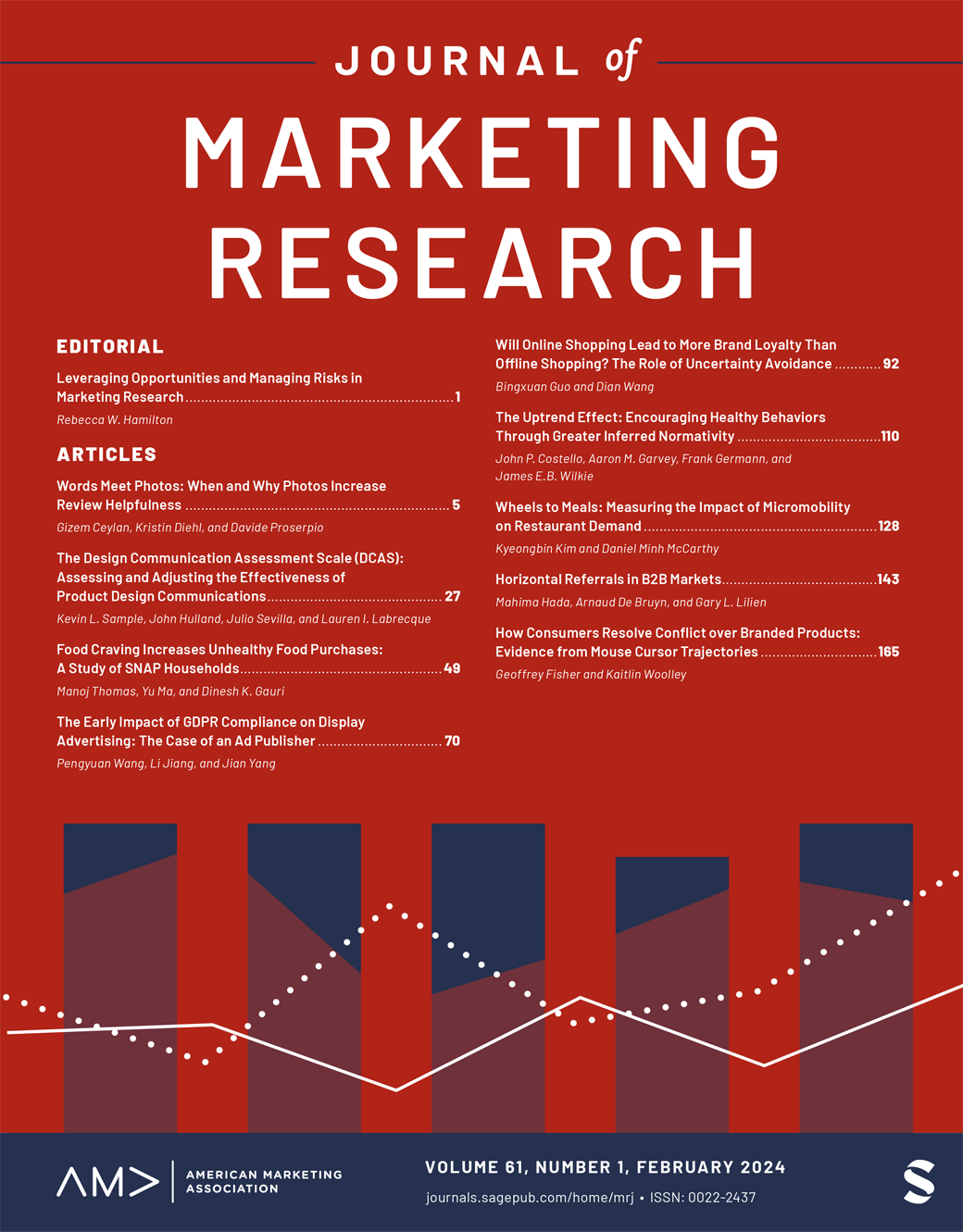我将为我们环保:当消费者为其合作伙伴的不可持续行为进行补偿时
IF 5
1区 管理学
Q1 BUSINESS
引用次数: 2
摘要
在浪漫关系中,伴侣经常观察对方不可持续的行为。但是,这些不可持续的行为是如何影响这对夫妇的每一位成员的呢?这项研究表明,消费者对伴侣不可持续行为的反应取决于他们所拥有的关系权力的大小:高关系权力个体通过相对于其基线倾向更可持续的方式来补偿伴侣的不可持续行为,但是低关系能力的个体并不能增加他们自己的可持续行为。这种影响的产生是因为在伴侣不可持续的选择破坏了夫妻身份后,高关系权力的伴侣对重建夫妻身份负有更大的责任;因此,他们有更强烈的愿望来表明积极的夫妻身份(即积极的夫妻可持续身份)。与这一理论一致的是,对于具有弱绿色身份的高关系能力个体,这种影响会减弱。七项研究通过测量和操纵关系权力以及评估假设和实际的可持续行为,为这些发现提供了证据。这项研究为可持续行为文献做出了贡献,并强调了促进家庭可持续行为的有效方法。本文章由计算机程序翻译,如有差异,请以英文原文为准。
I Will Be Green for Us: When Consumers Compensate for Their Partners’ Unsustainable Behavior
In the context of romantic relationships, partners regularly observe each other's unsustainable behavior. But how do these unsustainable behaviors influence each member of the couple? This research shows that how consumers respond to their partners’ unsustainable behaviors depends on the amount of relationship power they possess: high-relationship-power individuals compensate for their partners’ unsustainable behavior by acting in a more sustainable manner relative to their baseline tendencies, but low-relationship-power individuals do not increase their own sustainable behavior. This effect occurs because high-relationship-power partners feel more responsible for the reconstruction of the couple identity after it has been damaged by their partner's unsustainable choice; as a result, they have a stronger desire to signal a positive couple identity (i.e., a positive couple sustainable identity). Consistent with this theory, this effect is attenuated for high-relationship-power individuals who have weak green identities. Seven studies provide evidence for these findings by measuring and manipulating relationship power and assessing hypothetical and actual sustainable behaviors. This research contributes to the sustainable behavior literature and highlights effective ways to promote sustainable behavior in households.
求助全文
通过发布文献求助,成功后即可免费获取论文全文。
去求助
来源期刊

Journal of Marketing Research
BUSINESS-
CiteScore
10.30
自引率
6.60%
发文量
79
期刊介绍:
JMR is written for those academics and practitioners of marketing research who need to be in the forefront of the profession and in possession of the industry"s cutting-edge information. JMR publishes articles representing the entire spectrum of research in marketing. The editorial content is peer-reviewed by an expert panel of leading academics. Articles address the concepts, methods, and applications of marketing research that present new techniques for solving marketing problems; contribute to marketing knowledge based on the use of experimental, descriptive, or analytical techniques; and review and comment on the developments and concepts in related fields that have a bearing on the research industry and its practices.
 求助内容:
求助内容: 应助结果提醒方式:
应助结果提醒方式:


